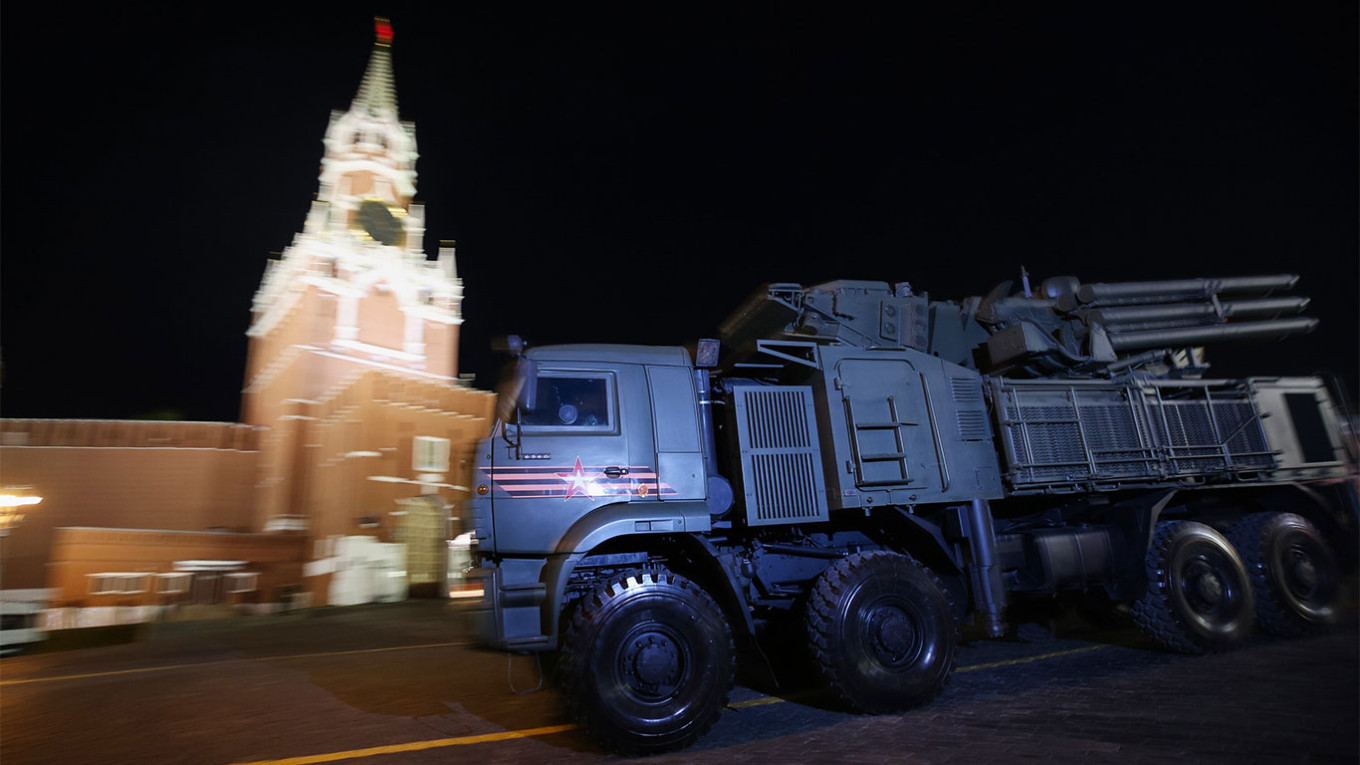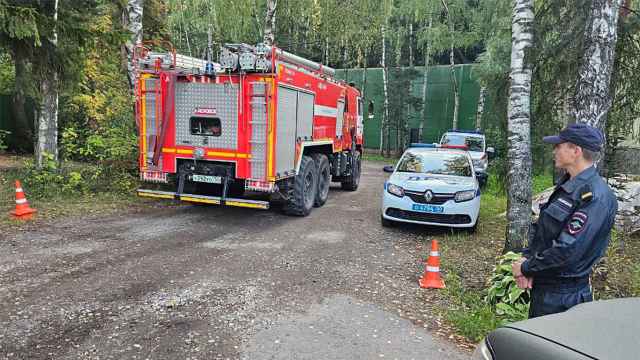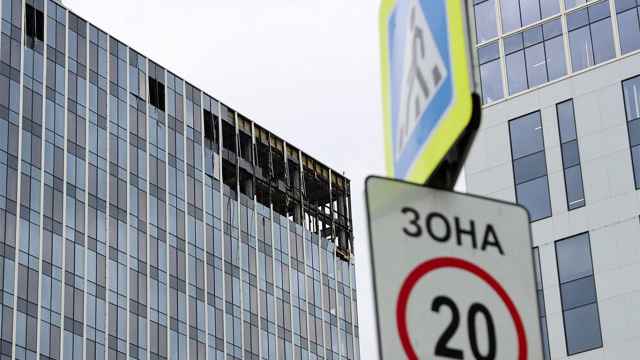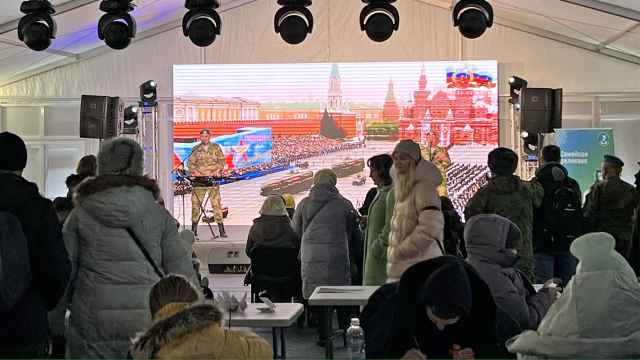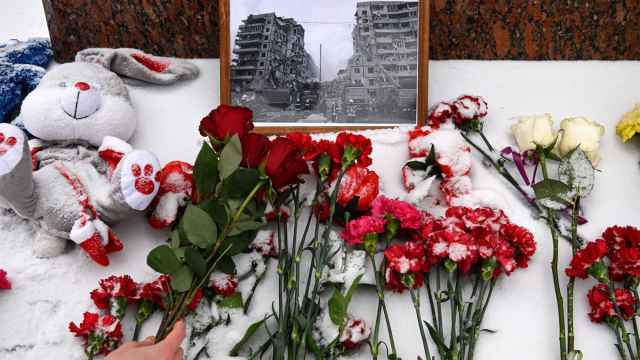The installation of air defense systems in the center of the Russian capital in recent weeks has been met with fear and anger by locals — as well as some indifference — as concerns appear to grow over Ukraine’s military ability to strike deep within Russian territory.
“Some people are panicking, some are irritated and some of my neighbors consider this a military escalation,” said a Muscovite living near the Losiny Ostrov (Elk Island) National Park in northeast Moscow near where an air defense battery was reportedly deployed.
“People are angry that there is no official information.”
At least five anti-aircraft missile systems have been spotted across Moscow in recent weeks, appearing in parks and on top of buildings as the Ukraine war — now in its 11th month — creeps closer to the Russian capital.
They include what looks to be a Pantsir-S1 surface-to-air system on the roof of the Defense Ministry headquarters a few kilometers from the Kremlin and a S-400 anti-aircraft system near the Timiryazevskaya metro station in the north of the capital.
The installation of these systems amid fears that Ukraine, supplied with advanced weaponry from its Western allies, could be capable of targeting Moscow.
In Losiny Ostrov, workers began clearing an area of woodland for the battery on New Year’s Day, according to the Muscovite who requested anonymity to speak freely.
Another air defense system was spotted last week near the Taganskaya metro station in сentral Moscow.
“When I first read reports about the air defense systems in Moscow, I thought it was fake news. And then I saw that air defense system on a nearby building when I was standing on my balcony,” a woman who lives near Taganskaya told The Moscow Times.
“I was surprised. When I was about to go to bed that day, there were some fireworks — I got up a few times to check that everything was OK,” she added. “It was really scary.”
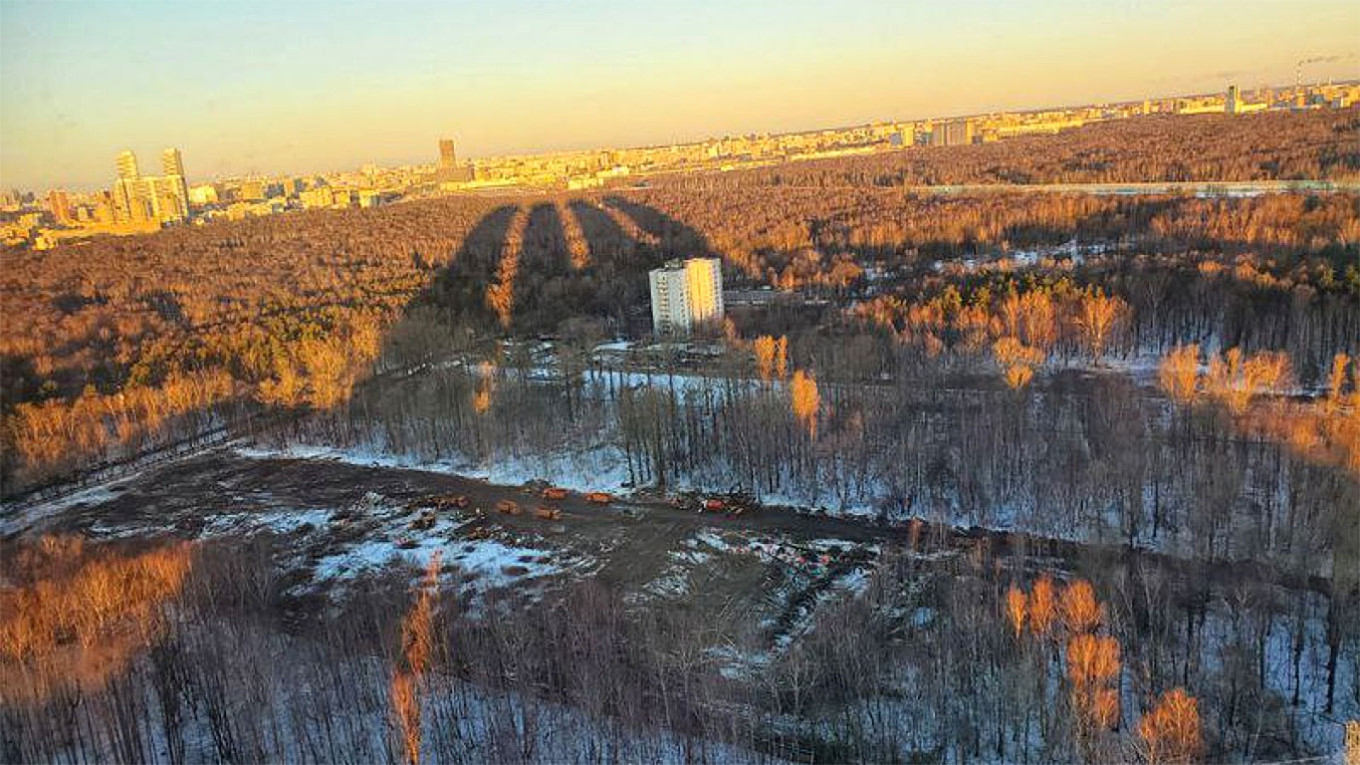
While the appearance of the military equipment has caused concern among some local residents, others said they were unconcerned about the possibility of Ukrainian strikes — or said they were too frustrated to follow the news about the war.
“We understand that they will protect the center of Moscow and the Defense Ministry,” said Vera, who lives in an apartment close to the Defense Ministry headquarters.
“We mind our own business and are just waiting for this to end.”
“I'm just tired of being nervous,” said another Muscovite, who requested anonymity.
Pantsir-S1 systems — which protect against a variety of weapons, including those launched from aircraft as well as ground-launched missiles — have also apparently been deployed in recent weeks near President Vladimir Putin’s official residences in Novo-Ogaryovo outside Moscow and in the Novgorod region, according to media reports.
No officials have yet commented on the air defense systems and Putin’s spokesman Dmitry Peskov refused to say Friday whether Russia was preparing for an attack on the capital.
But Russia’s Defense Ministry said over the weekend that it held a training exercise on repelling air attacks in the Moscow region.
“Ukraine has the technical ability to send drones that could reach Moscow; the question is why those drones couldn't be intercepted by Russia’s air defense systems on their way from Ukraine to Moscow,” military expert Yury Fedorov told The Moscow Times.
The Moscow systems are “a signal Russia’s air defenses are in a deplorable state,” he added.
The deployment of air defense batteries to the Russian capital appears to have come shortly after successful drone attacks on airfields in Russia’s Saratov and Ryazan regions — some 600 kilometers from the frontline in Ukraine — that have been attributed to Kyiv.
But the visibility of the new anti-missile defense systems might also serve a propaganda purpose as Russia’s forces continue to deliver lackluster results on the battlefield.
According to the U.S.-based Institute for the Study of War, one goal behind deploying such equipment in heavily populated urban areas was likely “to generate inflammatory images that portray the war as more threatening to the Russian public.”
News of the air defense systems’ appearance was widely shared by influential pro-war bloggers on messaging app Telegram.
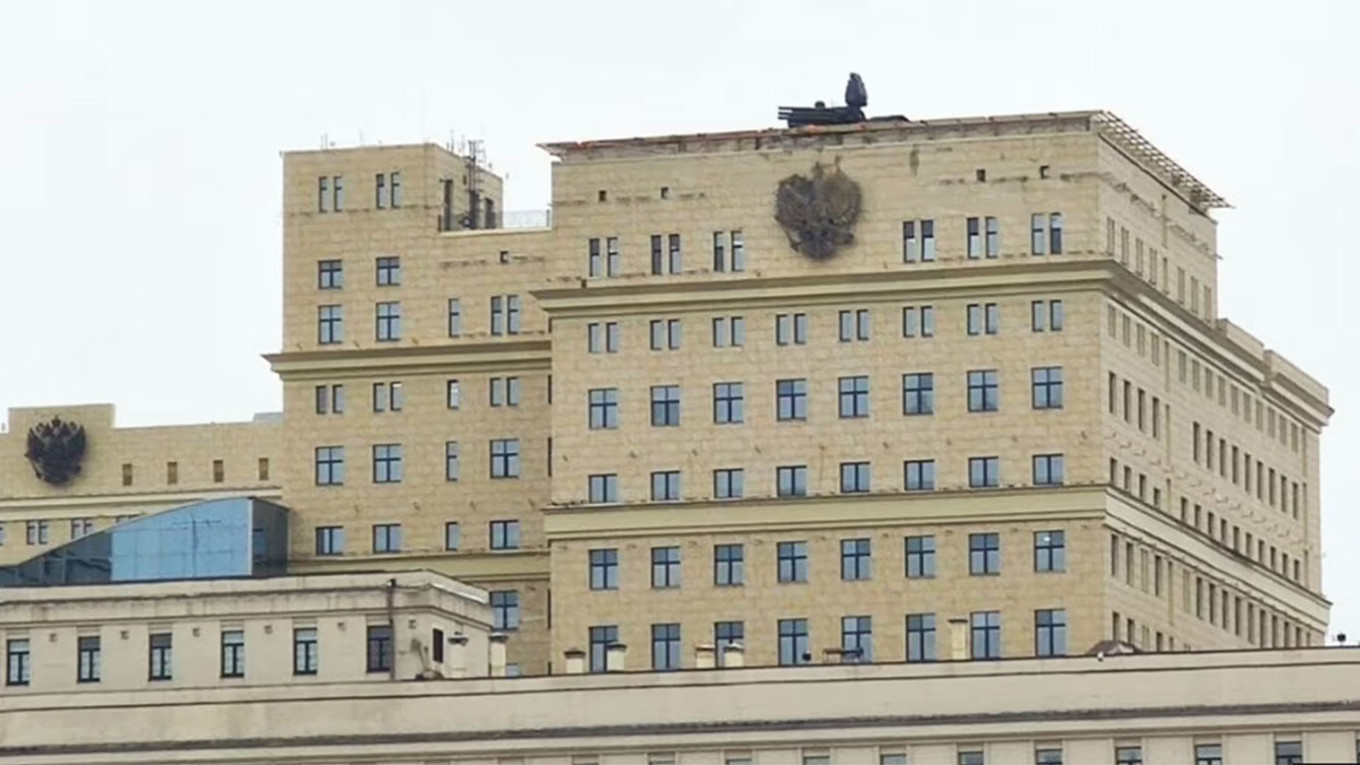
“One of the tasks is entirely technical — the deployment of modern air defense systems that are able to intercept drones,” political expert Ivan Preobrazhensky told The Moscow Times.
“And since this deployment is impossible to hide, it’s being done as publicly as possible so Russian people will not feel calm at home.”
However, it seems likely that the deployment will also irritate Moscow residents — especially as it is widely known that successful interceptions by such air defense batteries can carry risks for those on the ground below.
“We all understand that fragments of rockets would fall on nearby buildings,” said the Muscovite who lives near Losiny Ostrov.
Others highlighted that Russian officials have repeatedly accused Ukraine of causing civilian casualties when Ukrainian systems intercepted Russian rockets.
Earlier this month, Russian Foreign Minister Sergei Lavrov blamed Ukrainian air defenses for the destruction of a residential building in Ukraine’s Dnipro that killed 46 people.
“Lavrov complained about the installation of air defense systems in residential areas in Ukraine — now the same thing is happening in Moscow,” said a Muscovite who lives near the Taganskaya metro where such a system was recently installed.
“I think it’s absurd.”
A Message from The Moscow Times:
Dear readers,
We are facing unprecedented challenges. Russia's Prosecutor General's Office has designated The Moscow Times as an "undesirable" organization, criminalizing our work and putting our staff at risk of prosecution. This follows our earlier unjust labeling as a "foreign agent."
These actions are direct attempts to silence independent journalism in Russia. The authorities claim our work "discredits the decisions of the Russian leadership." We see things differently: we strive to provide accurate, unbiased reporting on Russia.
We, the journalists of The Moscow Times, refuse to be silenced. But to continue our work, we need your help.
Your support, no matter how small, makes a world of difference. If you can, please support us monthly starting from just $2. It's quick to set up, and every contribution makes a significant impact.
By supporting The Moscow Times, you're defending open, independent journalism in the face of repression. Thank you for standing with us.
Remind me later.



